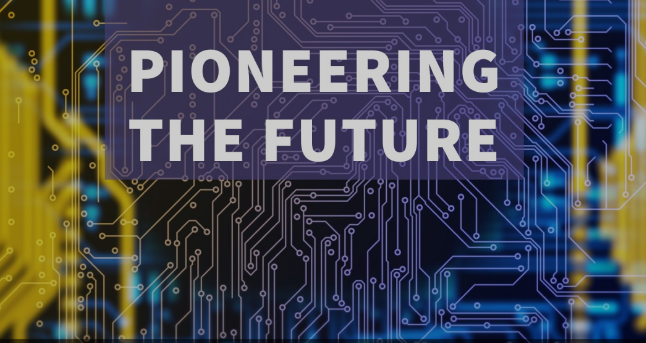In the twenty-first century, technology innovation drives transformative developments in a variety of areas. From healthcare to transportation, technological advancements have drastically changed how we live, work, and interact with the world. In the field of engineering, these advances are not only improving existing systems, but also forging new paths that promise an unprecedented future.
Evolution of Engineering Technology
Engineering has always focused on issue solutions and process improvement. However, the tremendous speed of technology innovation in recent decades has greatly expanded the scope and influence of engineering solutions. The merger of digital technology, artificial intelligence, and sophisticated materials has transformed traditional engineering specialties and created new fields.
- Digital Transformation & Industry 4.0
Industry 4.0 is the fourth industrial revolution, marked by the convergence of digital technologies, cyber-physical systems, the Internet of Things (IoT), and artificial intelligence. This change is reshaping manufacturing and production processes in smart factories, where machines are networked, data-driven, and capable of making autonomous decisions.
Smart factories use IoT devices to capture real-time data, allowing for predictive maintenance, reduced downtime, and increased operational efficiency. AI algorithms use this data to improve production quality, supply chain management, and innovation. For example, Siemens’ Amberg Electronics Plant in Germany has incorporated Industry 4.0 technologies, resulting in practically 0% failures and significant productivity increases. - AI & Machine Learning AI and machine learning are driving technological progress in engineering. These technologies improve design processes, allow for advanced simulations, and optimize complicated systems. Engineers today rely on AI-powered tools for everything from structural analysis to material identification.
Smart factories use IoT devices to capture real-time data, allowing for predictive maintenance, reduced downtime, and increased operational efficiency. AI algorithms use this data to improve production quality, supply chain management, and innovation. For example, Siemens’ Amberg Electronics Plant in Germany has incorporated Industry 4.0 technologies, resulting in practically 0% failures and significant productivity increases.
Graphene, a single sheet of carbon atoms organized in a hexagonal lattice, is one such material with remarkable features. It is extremely strong, lightweight, and highly conductive, making it suitable for a variety of applications such as electronics, energy storage, and structural materials. Researchers are constantly looking for new methods to harness the power of graphene and other advanced materials to develop breakthrough engineering solutions.

Impact on Different Sectors
Innovations in technology and engineering are having a significant impact across numerous industries, driving efficiency, sustainability, and new capabilities.
- Healthcare.
Engineering breakthroughs in healthcare are transforming diagnostics, treatment, and patient care. Medical gadgets, such as wearable sensors and implanted monitors, provide continuous health monitoring and early disease identification. Advanced imaging technologies powered by AI are boosting diagnostic accuracy and enabling individualized treatment options.
One significant accomplishment is the development of 3D printing for medicinal uses. Engineers are developing personalized prostheses, implants, and even bioprinted tissues and organs. This technology not only improves patient outcomes, but also lowers expenses and speeds up the creation of medical solutions.
- Transportation.
Engineering innovation is driving a huge revolution in the transportation sector. Electric cars (EVs) and self-driving technology are at the forefront of this transition. EVs, driven by sophisticated battery technology, provide a sustainable alternative to traditional combustion engines, lowering greenhouse gas emissions and reducing reliance on fossil fuels.
Autonomous vehicles, outfitted with sensors, artificial intelligence, and advanced control systems, promise to improve safety, reduce traffic congestion, and offer new mobility solutions. Tesla, Waymo, and Uber are heavily investing in the research and implementation of self-driving technologies, paving the way for a more efficient and accessible future of transportation.
- Energy
Engineering innovations are crucial in the energy sector for dealing with global concerns such as climate change and resource constraint. Renewable energy technologies, such as solar, wind, and hydroelectric power, are getting more efficient and affordable. Engineers are also developing improved energy storage systems, such as lithium-ion and solid-state batteries, to address the intermittent nature of renewable energy sources.
Smart grids, which combine digital technologies and traditional electrical infrastructure, improve the reliability and efficiency of energy distribution. These networks allow for real-time monitoring and regulation of energy flow, maximizing the use of renewable resources and reducing energy waste. As a result, the transition to a sustainable energy future is becoming more realistic.